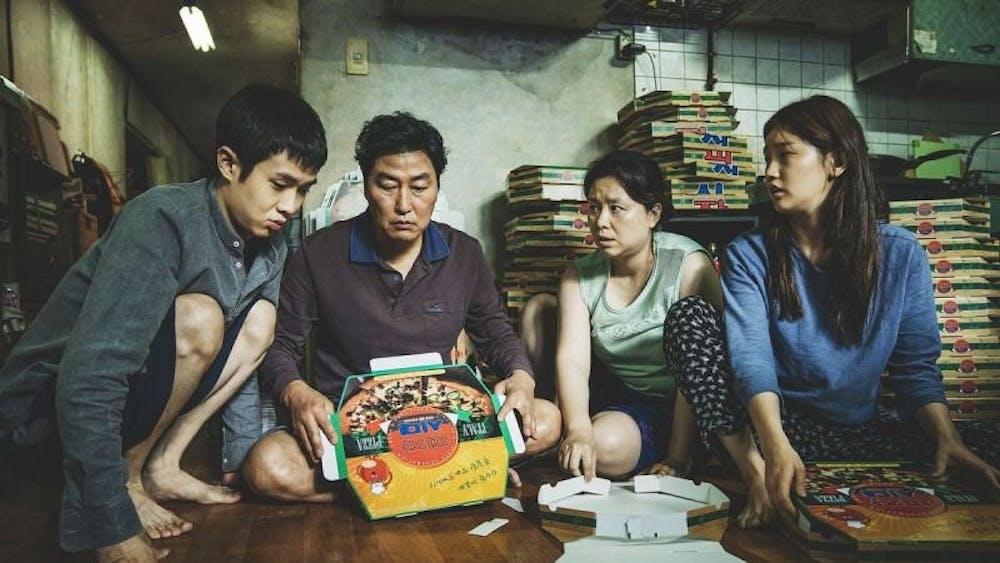South Korean director Bong Joon-ho was introduced to American cinema with his 2017 Netflix film Okja. Now, the director has become a household name in the U.S. with the release of his riveting thriller Parasite.
Parasite tells the story of two families on opposite ends of the economic spectrum — the rich Park family, who live lavishly in a giant, manicured home, and the Kim family, who are blue-collar workers who survive by their street smarts. The Kim family hustles their way into the Park home, posing as their housekeeper, private English tutor, driver and art therapist. A symbiotic relationship forms between the oblivious and lying parties, until class prejudice gets the best of both.
Audiences will get the most out of the film going in cold. Knowing a brief synopsis will give viewers all they need for Parasite, and filmgoers don’t need to prepare for it, but rather sit back and enjoy the ride — watch now, think later.
What makes Parasite so good is how well made it is. The writing is so simple and relatable. Viewers have an easy time understanding the plot of the film, which makes every twist and turn all the better. Not overtly artistic, and plainly well-crafted, Parasite is the perfect gateway into international cinema. With totally unpredictable twists and turns, layered metaphors and fantastic imagery, Parasite is gripping and detailed.
But ultimately, Parasite is the last must-see film of the decade. Films of the late 2010s arguably have been full of tales of class conflict. Though Parasite takes “class conflict” literally, the theme of classism in film has been recently more prominent. Movies like American Honey and The Florida Project — or even Lady Bird — use class and the emotional toll of poverty as major themes. More recently, Jordan Peele’s Us used class as a source of horror. It will be interesting to see if films of the 2020s expand upon this, or if it was just a brief thought in cultural consciousness.






